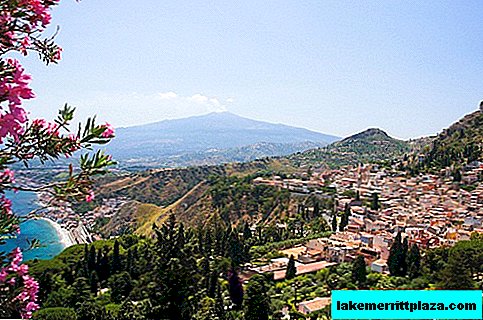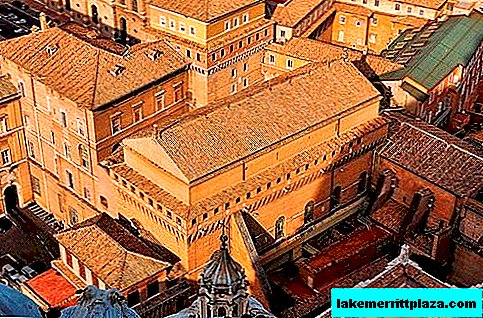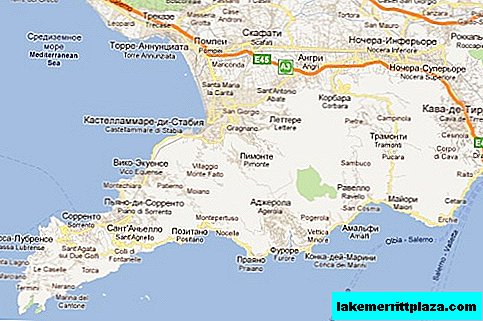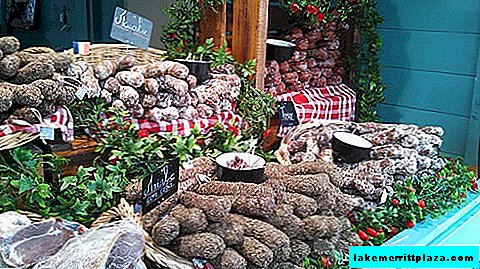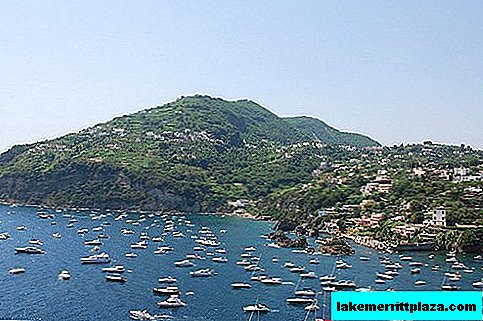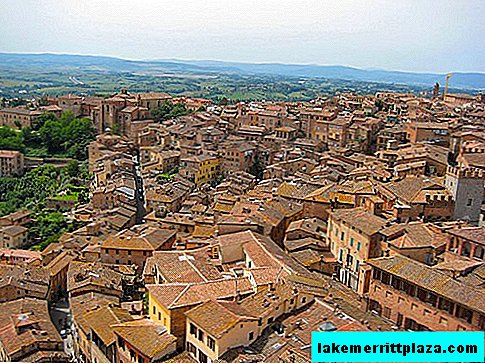In the second issue, we described how, thanks to the efforts of soldiers, who were tired and bored of peace and material security, we managed to avoid a war between the two triumviers, after which one of them sailed off to Egypt to hang out, and the second remained in Italy to deal with the pirate separatist Pompey.
Octavian zealously used the freshly built ships with a new wunderwaffe, invented by his gunsmiths, Pompey snapped back, using much more experience in tactics at sea, but after some time the Roman troops still managed to land on the enemy island (although they hollowed out a lot of ships in the process) . After that, the taming of the shrew went easier - on land Octavian was at least thinking something, plus he was helped by skillful subjects and the third triumvir - Lepidus.
At this point, the reader can ask a reasonable question - why do we regularly talk about the triumvirate, but write practically nothing about the third participant?
And because Lepidus was initially invited to the society of respected dons purely as a "third for the company" and a person who has a certain influence in the army. He really did not have weight in politics - everything revolved around Caesar's heir and the Egyptian rake Mark Anthony. Looking ahead, we will inform you that this state of affairs did not lead Lepidus into violent delight at all.
At the same time, he played an almost decisive role in the final legitimacy of Pompey, having managed to land faster and more efficiently in Sicily at the head of his brigade. Octavian’s troops came a little later and finished off the separatist commander, after which he fleeing, he preferred to surrender precisely to Lepidus, and not to the son of a dictator, known for his "honest word" and angelic character. It was at this moment that the triumvir loser chose to claim his rights. The military leader wanted Sicily and more opportunities to manage the republic (well, more precisely, what was left of it at that time).
As can be seen from the epithet used to describe Lepidus, the case did not burn out. Octavian, perhaps, did not know how to properly move the legions back and forth and swim through the oceans, but the skills of promises with three boxes with an honest, soulful look were put perfectly on him. The troops of Lepidus, listening to the next tales of the speedy distribution of elephants and the materialization of spirits, passed under Guy’s arm, and the putsch ended in nothing, and the protesting commander himself was in a very unpleasant position.
After the victory, Octavian set about distributing rewards and punishments. Pompey managed to escape from the island, but not for long - in 35 BC he was discovered in Asia Minor by the legate of Octavian and executed. Lepidus escaped with a slight fright, but from big politics was removed from the word "completely" once and for all. The slaves, whom Guy vowed to promise to free, returned to the waiting owners. Those whose owners were not found, according to the "divine youth" were superfluous at this celebration of life, were executed without any hesitation.
But with the awards it turned out to be more difficult. In those distant times, soldiers most of all loved the salary paid on time. (which is indicated by the etymology of the word "soldier" from the word solidus - the Roman gold coin, albeit issued three hundred years after the events taking place in our story). And it was precisely with the money that Octavian, in spite of all efforts, remained tight. The problem was solved by the imposition of monstrous payments to Sicily (usually such extortionate exactions were reserved for external opponents, not internal). While they were collecting money, Guy generously distributed commemorative badges and medals to the legionnaires, to which they reacted extremely gloomily - you won’t eat the order with bread and don’t put it in porridge.
However, a social explosion did not happen - bread places for settlement in the west of the Republic and some crumbs squeezed from Sicily did not allow the armies to rebel.
After a showdown with Pompey, Octavian was not at all going to stop building up the fleet and military power. In the short term, he was faced with the task of organizing and implementing a military campaign in Illyria (see the former Yugoslavia, those lands), as this would show all doubting patricians of Rome and other people that Octavian is a hooded and generally tough guy. The Romans were very, very fond of successful commanders, as we already wrote in the series about Spartak.
After the complete removal of Lepidus and Pompey’s flight, there was no normal “opposition” party, and all those who didn’t join remained to choose between Anthony and Octavian in a typical and eternal situation, some time ago aptly described by someone with a vivid phrase about a toad and a viper. Most of the two evils leaned toward Mark. Yes, that same type, a throaty fanfaron with an extremely doubtful past, but Octavian’s duplicity and viciousness, too, were all watched properly. Plus, the image of Anthony's excesses managed to be somewhat forgotten during the time that he ignited in Egypt - such a thing is human memory.
At some point, Mark nevertheless recalled his main task in the east and even began to actively and competently prepare for it, studying Caesar's findings on this issue and especially carefully considering all the miscalculations of the gold-fed Crassus - we are talking about the war with Parthia. In principle, the logistics, direction of strikes, the choice of allies and the moment of the attack were calculated successfully, but a factor named Cleopatra once again intervened in the matter.
Sources diverge in describing the specific reasons for Anthony's too hasty actions in the Parthian campaign. Either he seriously lingered in Egypt and then was forced to drive horses, trying to manage on time. Or I just wanted to quickly deal with everything and return to my beloved - I just don’t understand. However, due to excessively fast marches in bad weather and natural conditions (he decided to go through Armenia, and not through deserts), all the siege equipment reserved for the assault on Parthian fortresses lagged behind the army and was quickly destroyed by moving enemy units, and without catapults , a ballista and other heavy goods to batter into the walls with their heads was very stupid and difficult. Having lost a lot of people (from 25 to 42 thousand, depending on who writes), Anthony returned to Egypt sloppy, but at least not having eaten gold.
Somewhat discouraged, Mark got involved in Armenian politics the next year at the request of one of the local kings. Arriving on a diplomatic mission to the capital, Anthony called the ruler of Armenia "to talk", after which he stupidly captured him and quickly (and almost bloodlessly) cleared the country from his supporters, annexing it to Rome. Although the victory blew and rotten little soul, Mark was very happy how cleverly everything turned out, minted coins in honor of his achievement and even celebrated the triumph. But in Alexandria, and not in Rome, where he was less and less pleased.
The fact is that while the favorite of women trampled back and forth across the territories of Armenia and lost siege equipment due to his own haste, Octavian was able to achieve certain military successes in Illyria and corrected things with his own reputation and state treasury. True, the occupied territories did not go particularly far inland, for the most part the Romans occupied the coastal zones, and even so-so - literally 30 years later, a serious uprising will break out there, but so far the tasks have been completed.
It is time to move on to the next part of the tricky plan. Since out of the total triumvirate there are only two people left, who, according to Octavian, was completely superfluous?
Exactly.
Anthony contentedly returned to Egypt, Cleopatra greeted his chosen one, and Guy Octavius Furin pondered how to get rid of his next obsolete ally.
The climax is coming soon.
Read the rest of the story about Octavian coming to power:
- part 1 - triumvirate, 42-41 BC
- Part 2 - How did Anthony and Octavian share power?
- part 4 - the war of Anthony and Octavian
- part 5 - victory in the war with Mark Anthony, the suicide of Cleopatra
History Fun specifically for Italy for me.


